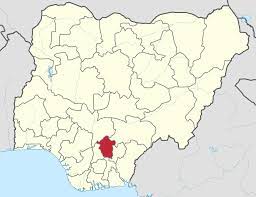INTRODUCTION
Enugu is one of the five states that make up the South-East geopolitical zone of Nigeria. It has interstate boundaries with Kogi and Benue States to the North, Abia State to the South, Anambra State to the West and Ebonyi State to the East. The state capital is Enugu.
LANDMASS, LOCATION, AND POPULATION
Enugu State covers an area of 7,161.3 square kilometres. It lies at latitude 6°30′ North and longitude 7°30′ East. The state has a population of 3,267,837 (2006 census) 4,411,119 (2016 forecast) and a population density of 456. It accounts for 2.3% of Nigeria’s total population.
HISTORY AND PEOPLE
Since the seventeenth century, the location of present-day Enugu has been inhabited by the Nike sub-group of the Igbo people. The state derives its name from Enugu, its capital city, which was an important coal mining centre during the colonial period and the 1960s. The word ’Enugu’ (from EnuUgwu) means ‘the top of the hill,’ a nod to the hilly topography of the area.
Enugu State was originally part of the Eastern Region in the three-region structure of 1954. In 1967, with the creation of twelve federal states by General Yakubu Gowon’s military government, it became part of East Central State. In 1976, General Murtala Muhammed’s military government created nineteen states out of the existing twelve and Enugu State became part of Anambra State. In 1991, Enugu State was carved out Anambra State by the military government of General Ibrahim Babangida.
The Igbo people are the only ethnic group in Enugu State and Igbo is the only indigenous language in the state. Christianity is the main religion, although traditional religion is also practised there.
MAIN TOWNS AND CITIES
Enugu (capital), Awgu, Agbani, Oji River, Nsukka and Udi
LOCAL GOVERNMENT AREAS
ADMINISTRATORS AND GOVERNORS
Herbert Eze (Governor – Military): August 1991 – January 1992
OkwesiliezeNwodo (Governor – Civilian (National Republican Convention)): January 1992 – November 1993
TemiEjoor (Administrator – Military): December 1993 – September 1994
Mike Torey (Administrator – Military): September 1994 – August 1996
SuleAhman (Administrator – Military): August 1996 – August 1998
Adewunmi Agbaje (Administrator – Military): August 1998 – May 1999
Chimaroke Nnamani (Governor – Civilian (People’s Democratic Party)): May 1999 – May 2007
Sullivan Chime (Governor – Civilian (People’s Democratic Party): May 2007 – May 2015
Ifeanyi Ugwuanyi (Governor- Civilian (People's Democratic Party)): May 2015- present.
ECONOMY AND EDUCATION
Coal
Enugu State is mostly grassland with scattered forests. The core of the state’s economy is agriculture: sixty percent of the state’s workforce is engaged in farming. The principal cash crops are yam, corn, cassava, oil palm, cashew and rice. Coal is its major mineral; other minerals found in the state include iron ore, limestone and marble. The major industries in Enugu State are breweries, textiles and automobile assemblage.
The tertiary institutions in the state are University of Nigeria, Nsukka; Enugu State University of Science and Technology, Agbani; Caritas University, Amorji-Nike; Renaissance University, Ugbawka; Federal School of Dental Technology and Therapy, Enugu; Institute of Management and Technology, Enugu; Our Saviour Institute of Science and Technology, Achara; Federal Cooperative College, Oji River; Enugu State College of Education, Enugu; and Federal College of Education, Eha-Amufu.
FAMOUS SITES AND CULTURE
Sites
Awhum Waterfall and Caves, Amaugwe
The Amwun Waterfalls is sited in Amaugwe village, Udi local government area. It is formed from a very large outcrop of granitic rock at the top of which is a stream lined by many caves.
Silicon Hill, Nkalagu
Silicon Hill as the name implies, has rich silicon deposit. It is 300 metres above sea level and the hilltop is within reach for climbers.
Ngwo Pine Forest, Caves and Waterfall, Enugu
The initial idea behind the establishment of the forest was to check erosion. Limestone caves can be found in it. One of the caves has a small waterfall that forms a shallow pool in the cave.
Culture
Communities in Enugu State celebrate the New Yam festival between July and November to thank the god of the land (Chukwuobioma) for his protection throughout the planting season.
Inhabitants of OhuaniOruku community in Nkanu-East local government area celebrate the Ekpe Masquerade festival between November and February. Their neighbours in Isienu, Obinagu, Ama-eke and Eziobodo are known for the Omaba festival
Mmanwu festival is another significant festival of masquerades in Enugu and takes place in November every year.
NOTABLE INDIGENES
Charles Dadi Onyeama (1917 – 1999)
C.C. Onoh (1927 -2009)
DID YOU KNOW
Coal was first discovered in Nigeria at Udi Hill in 1909.
ENUGU STATE IN PICTURES

